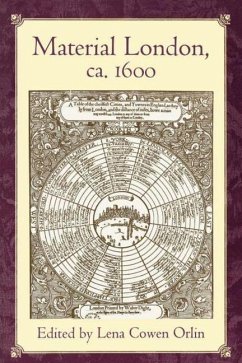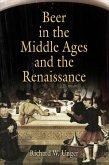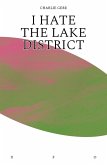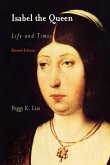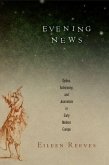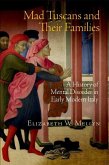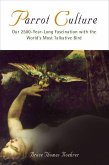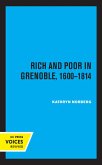Between 1500 and 1700, London grew from a minor national capital to the largest city in Europe. The defining period of growth was the period from 1550 to 1650, the midpoint of which coincided with the end of Elizabeth I's reign and the height of Shakespeare's theatrical career. In Material London, ca. 1600, Lena Cowen Orlin and a distinguished group of social, intellectual, urban, architectural, and agrarian historians, archaeologists, cultural anthropologists, and literary critics explore the ideas, structures, and practices that distinguished London before the Great Fire, basing their investigations on the material traces in artifacts, playtexts, documents, graphic arts, and archaeological remains. In order to evoke "material London, ca. 1600," each scholar examines a different aspect of one of the great world cities at a critical moment in Western history. Several chapters give broad panoramic and authoritative views: what architectural forms characterized the built city around 1600; how the public theatre established its claim on the city; how London's citizens incorporated the new commercialism of their culture into their moral views. Other essays offer sharply focused studies: how Irish mantles were adopted as elite fashions in the hybrid culture of the court; how the city authorities clashed with the church hierarchy over the building of a small bookshop; how London figured in Ben Jonson's exploration of the role of the poet. Although all the authors situate the material world of early modern London-its objects, products, literatures, built environment, and economic practices-in its broader political and cultural contexts, provocative debates and exchanges remain both within and between the essays as to what constitutes "material London, ca. 1600."
Dieser Download kann aus rechtlichen Gründen nur mit Rechnungsadresse in A, D ausgeliefert werden.

